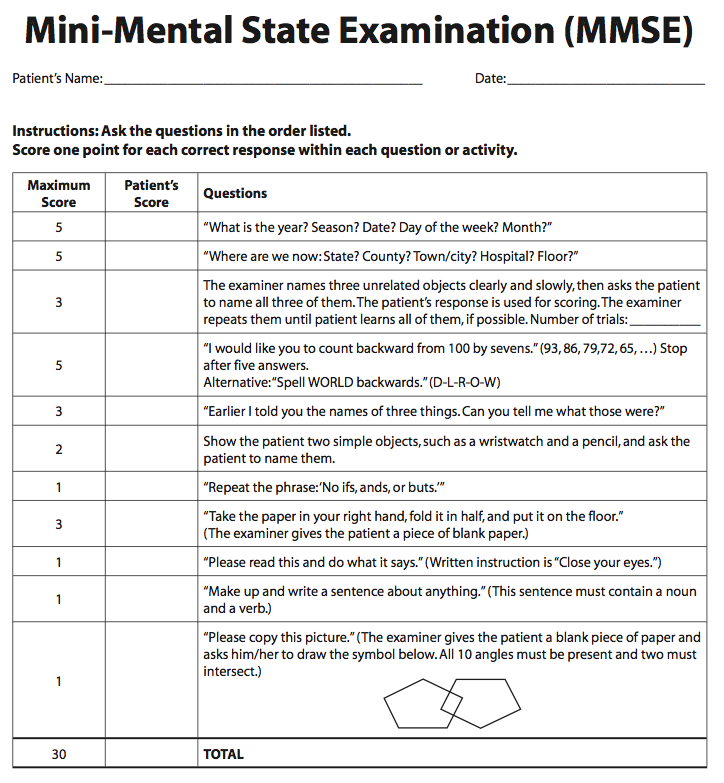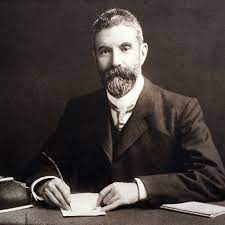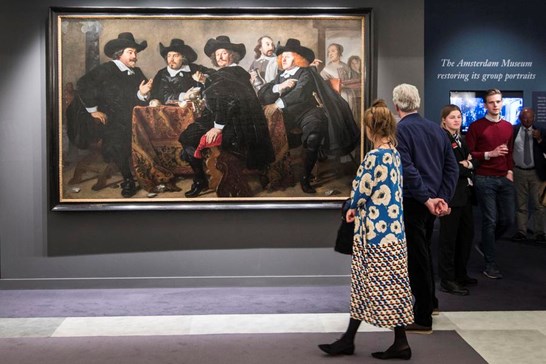
Sunday was St Patrick’s Day. I could not resist reprinting the diagram from the Economic & Statistics Administration of the US Department of Commerce of the concentration of people of Irish heritage in the USA. There are emerald-green pockets everywhere. The emerald-green colour is unsurprisingly concentrated in New England, and eastern seaboard states, particularly New Jersey and New York, although seemingly less so.
We dined on Irish sausages, boxty and colcannon, washed down by Black Label Jamesons. Sorry, I don’t like Guinness, too much like stout. Old man’s drink. Pardon me did I hear right, you seanfhear of Clare.
Bend Hur to Political Bias
Over more than four hours, Hur repeatedly tried to steer the questions back to the facts he uncovered and his legal reasoning for not seeking charges. The politicians weren’t having it. Hur repeatedly tried to steer the questions back to the facts he uncovered and his legal reasoning for not seeking charges. The politicians weren’t having it.

Robert Hur in a 345-page report commissioned as Special Counsel by Merrick Garland, the US Attorney-General concerning retention of classified documents by Biden after he had left his Vice-Presidential post in 2017 had concluded that Biden should not be prosecuted, but he listed as part of his reasoning that Biden was an elderly man on the verge of dementia. Not that explicit, but sufficient to light a fire in the form of a partisan Congressional committee hearing. Robert Hur, as reported above, tried to impart objectivity, but he shows a basic misunderstanding of how the political process is aflame in the lead up the Presidential election later this year.
Eric Swalwell, a Democratic Congressman from California took the opportunity to screen a video of Trump obviously showing severe signs of cognitive deficiency – a concentrate of Trump’s failings which Fox was compelled to show because it was part of the Congressional hearing.
What is so crazy about this concentration on these two old men’s mental states is the apparent refusal of the two to submit themselves to independent cognitive testing. Here the world is on the brink of a catastrophic change in climate, where political gangsters in the name of patriotism are indulging in genocidal inhumanity, and we have the prospect in the near future of the most powerful leader in the Western World being reduced to a dribbling lump of suet, as was Pope John II, once one of World leaders.
In a beautiful example of a prequel to the current situation is the Wikipedia, the following (sic): In 2001 Pope John Paul II was diagnosed as suffering from Parkinson’s Disease. International observers had suspected this for some time, but it was only publicly acknowledged by the Vatican in 2003. Despite difficulty speaking more than a few sentences at a time, trouble hearing, and with severe osteoarthrosis, he continued to tour the world, although rarely walking in public.
In temporal terms, 81 when diagnosed, 83 when disclosed, 85 when died.
 Take note, America, of your Presidential aspirants. But of course, from those sycophantic scheming advisers surrounding each of them, you won’t hear any disclosures. You’ll keep the fiction of these guys being totally compos mentis. Each party, now with access to artificial intelligence, presages a “pile-on” by each party. Objectivity will be lost. The Mini-Mental State Examination (MMSE) takes fifteen minutes. It should be administered as the first question in the first Presidential debate.
Take note, America, of your Presidential aspirants. But of course, from those sycophantic scheming advisers surrounding each of them, you won’t hear any disclosures. You’ll keep the fiction of these guys being totally compos mentis. Each party, now with access to artificial intelligence, presages a “pile-on” by each party. Objectivity will be lost. The Mini-Mental State Examination (MMSE) takes fifteen minutes. It should be administered as the first question in the first Presidential debate.
Alfred Deakin
I have just finished reading Walter Murdoch’s biography about Alfred Deakin, Australia’s second Prime Minister. Described as a Sketch, Murdoch had extensive access to Deakin’s diaries, courtesy of his wife. The biography was published just four years after Deakin’s death. Murdoch was founding Professor of English at the University of Western Australia, and even though he was passed over for the Chair in Melbourne, he never lost his love for Melbourne where he gone to school and university.

He wrote this book about Deakin while back in Melbourne in the early 1920’s. Given the source of the material, Murdoch was circumspect, tending to skate over Deakin’s failures and praise his successes of nevertheless a very productive life.
In this context, there is a poignancy of a man who wrote of his cognitive decline. Deakin realised that he was not up to public life as early as 1912, when he lost leadership of his party. By 1914 when Joseph Cook, the Prime Minister at the outbreak of WWI, appointed him to chair a Royal Commission on Food Supplies and on Trade and Industry during the War, he recognised his deterioration. By November he had gone from the Chairmanship. At the same time, as recounted by Murdoch, Deakin wrote in his diary the following, presaging his mental decline.
Sometimes with a fairly working memory I can temporarily disguise my plight. But these flashes of restoration are neither frequent nor durable. Knowledge comes and goes; after I have seen the natural development of an argument or a situation perfectly clear before me, most and sometimes all of it vanishes so quickly and so absolutely that I cannot retain or describe a single feature of all that was obvious and lucid a second before. I am without command of memory and almost without understanding.
By 1915, Murdoch writes that Deakin’s diary was increasingly incoherent until his last entry, which retained some insight, was written in 1917. This transcribed entry was written in 1916.
“Not only has my memory foundered as a whole, but I have now become a mere juggler with myself – misleading and misconstruing myself. My helpless attempts to read the riddle of my mind and thought must be abandoned. So far I can claim nothing; next to nothing remains with me. My life as a politician has died out so absolutely that I really remember nothing of it possessing any practical value. I have no real past to which I can turn for help or means of escape. I gain nothing by repetition. I learn nothing new that exists for me more than a few days.
What I think I have learned soon dies away into a mere tag and tangle of words, words, words. Why babble more? Since 1912, I have lost grip of everything actual, practical or purposeful … All is loss, diminished outlooks, insoluble problems, endless forgetfulness, oversights, and misapprehensions. I cannot even write English simply or plainly. I have shed, once and for all, my past as a whole – my present fruitless – my future a hapless mass of wreckage and of misunderstanding.”
A tragic account by a great Australian, who is chronicling his mental decline. He died in 1919 at the age of 63. Alfred Deakin was excruciatingly honest, more than you can say of both Biden and Trump. Deakin had been in public life since he was 22 years of age.
Where the Dutch Alps are…
When I read about the Art Fair in Maastricht, it brought home to me how many places with which I’ve had an association. In 1993, I opened an international society’s annual conference there. It was a time when I was its President, and the previous year, I had opened the conference in Mexico City speaking Spanish. I was quickly dissuaded from repeating the feat in attempting my opening address this particular year in Dutch. I was prepared to give it a go. Inter alia I had practised giechelende jongleur (giggling juggler) and n scheve schaats (a crooked skate.)

In particular I also practised saying the Dutch resort name Scheveningen (a word the Dutch used during the War to detect Germans, who pronounce it sufficiently differently).
Meteorologisch is alleged to be the hardest word to pronounce in Dutch. I do not believe I would have needed to use the word in my speech, but in my Mexico address I did successfully negotiate the pronunciation of the two volcanoes, Popocatépetl and Iztaccihuatl.
Maastricht is the capital of the Limburg province. It is best known as the birthplace of the European Union (the treaty that created it was signed here in 1992) and where the common currency, the euro was flagged as well.
As a result, the conference centre had been nearly newly-minted when my conference came around in the same location, a light airy experience in this small city surrounded by what was whimsically called the Dutch Alps (Cauberg is the highest dwarf mountain at 134 metres). Maastricht, unlike most of the Netherlands, is built on rock foundations, not on the sandy knolls of the Rhine delta. It was said that Napoleon had carved his name in one of the caves, but I had not the time to see if that was true.
I have some memories of a conference, when so many of the participants were young and enthusiastic. I remember sitting at the other end of the long table and noticing the young Russian, bearded and gaunt, a silvery image who well fitted the image of the young intellectual. I don’t remember his name, although he was supposed to be part of the Brezhnev office. How far we have travelled with our aspirations – not!
But Maastricht has prospered in the intervening 30 years.
I was attracted to the following item about Maastricht, now one of the major trading sites for upmarket art. As with everything Dutch, they are very thorough in anything they do, as witness the way this fair is conducted.

Every March since 1988 the European Fine Art Foundation has put on a fair in this Dutch city. It’s where museums and art aficionados come to shop and buy. “Maastricht”, as art-world insiders call it, is “the most important fair by a mile for classical paintings and works of art,” The eight-day fair opened this year on March 7th.
Maastricht is not the only fair where expensive art is sold, but it probably boasts the largest concentration of museum curators on the hunt for their next acquisition. Among this year’s 50,000 visitors are some 300 museum directors—including Laurence des Cars, who runs the Louvre in Paris—and 650 curators. It is the premier destination for old art, as opposed to the contemporary paintings that fairs like Art Basel in Switzerland and Miami favour.
What happens before the fair begins is also unusual. For a day and a half 230 specialists come in to vet works’ authenticity, as well as their descriptions and stated provenance, bringing x-rays and other technical machines with them.
The specialists have the right to ask for descriptions to be changed. Objects can be removed if the experts believe they are inauthentic; they are locked in a cupboard until after the fair. “You come back in and hope to God that nothing has been thrown out,” says one dealer, who calls Maastricht “the best-vetted fair in the world”.
Maastricht offers a window on the art world and current collecting trends. The fair is best known for Old Master paintings, but the number of contemporary dealers in attendance has been growing—because that is where most of the activity in the art market is. Last year European Old Masters (defined as work produced by artists born between 1250 and 1820) accounted for less than 4% of the value of sales at auction globally, according to a new report by Arts Economics, a research firm. In 2003 it was 16%.
The World of Illusion
The article below is a very good example of the rise of remedies of dubious nature to improve cognitive abilities. I have lightly edited the article. Note the role of the celebrity mountebanks, the risible influencers in modern parlance.
I find the quest for a mental elixir as understandable not the least of which is the riches a drug, if proved successful, would attract. I am somewhat of the belief that the search for the anti-ageing potion in direct competition with Nature’s demand for renewal will be difficult. A miracle drug would change society. In my lifetime the discovery of antibiotics and improvement in both number and level of cover of vaccines are prime examples of miracle medicines. Infection disease hospitals were closed – prematurely as the HIV/Aids epidemic showed.
Reference is made to the 2011 film “Limitless”, which describes the effect of taking such an anti-ageing drug. The main character, played by Bradley Cooper, pursues a dark course in what is described as a thriller. Given it is also depicted as science fiction it seems to move from one aspect of the dilemma with the requisite violence to maintain the audience’s attention at the same time as the dilemma of interfering with natural order is magnified. Has the Bradley Cooper character weaned himself off the drug while retaining the mental prowess, thus in effect conquering Nature?
“Limitless” is often credited with driving an uptick in interest in products that improve focus or enhance memory. It depicts a struggling writer whose life is transformed by a smart pill. More recently the real-life version of nootropic supplements, as such boosters are called, have received celebrity endorsements.
 Bella Hadid, a supermodel, is behind Kin Euphorics, a brand which offers consumers the chance to “achieve an elevated state of health, mood or well-being”. Joe Rogan, the alpha-male host of the world’s most popular podcast, endorses “Alpha Brain”, which, he says, “seems to fire up” that organ.
Bella Hadid, a supermodel, is behind Kin Euphorics, a brand which offers consumers the chance to “achieve an elevated state of health, mood or well-being”. Joe Rogan, the alpha-male host of the world’s most popular podcast, endorses “Alpha Brain”, which, he says, “seems to fire up” that organ.
Alpha Brain is made by Onnit, a supplements firm co-founded by Mr Rogan in 2010 to “inspire a journey towards total human optimisation”. The brand caught the eye of Unilever, a soup-to-soap conglomerate, which bought it for an undisclosed sum in 2021. Its consumer-goods rivals have piled in. Reckitt Benckiser, the parent company of brands such as Durex and Strepsils, sells Neuriva. They are competing with—and eyeing up—a slew of supplements startups. Polaris, a research firm, reckons global sales of nootropics, which hit $11bn in 2021, will grow at an average annual rate of almost 15% until 2030.
Nootropics are usually an alphabet soup of ingredients: amino acids such as L-theanine, herbal extracts such as ashwagandha, probiotics, vitamins and a bewildering variety of mushrooms. Neuriva contains branded forms of coffee-fruit extract and phosphatidylserine, a type of fat. The ingredients are being combined to form novel products that claim to offer various brain-stimulating benefits. Their emergence has coincided with a post-pandemic interest in wellness. They appeal both to older consumers concerned about cognitive decline, and to younger ones keen to excel in the face of millennial angst.
To manufacturers, their appeal lies both in growing demand and in the ease with which supplements can be put on the market. Many countries regulate the health claims that can be made for products but also leave their producers plenty of wiggle room.
It helps that it is hard to say whether nootropics actually work. There is some evidence that they might. Andrea Utley, an expert in motor control and development at the University of Leeds and a self-professed nootropics sceptic, tested one supplement. Her randomised study found that it speeded up decision-making and improved memory.

But few such studies have been conducted. Richard Isaacson, of the Institute for Neurodegenerative Diseases in Florida, recalls a patient whose liver function was so “all over the place” that it pointed to too much boozing. It turned out it was in fact too much Lion’s mane, a mushroom with supposed nootropic benefits. Trying to arrest cognitive decline with lab-tested supplements tailored to an individual patient’s needs is one thing, Dr Isaacson says. Stimulating an unimpaired brain without knowing what risks lie down the road is another.
As I reflect on the above, I believe genetic influences are paramount in the retention of one’s mental prowess as we age. What does my heredity tell me before I indulge on what in the end constitutes a form of mind alteration – or cosmetic!
An Anecdote among the Washington Post Recipes
I tried to think whether I could rival this anecdote. No wonder, I’ve always had too much of a sweet tooth.
 I grew up in a soup-loving family. One of my dad’s favourite stories to tell is that once when he was a kid, his family went to a restaurant famous for its split pea soup. When the server came around to ask if anyone wanted dessert, my dad ordered another bowl of split pea soup.
I grew up in a soup-loving family. One of my dad’s favourite stories to tell is that once when he was a kid, his family went to a restaurant famous for its split pea soup. When the server came around to ask if anyone wanted dessert, my dad ordered another bowl of split pea soup.
Not funny, but what kids do – unashamedly without regard for convention.
The Disgust or Paradise Soiled
The following is typical of what passes as public policy. Mr Burgess stands up to the mike and makes serious allegations. The matter remains both unsubstantiated and unresolved. The news cycle moves on, and this week it is TikTok, but the Chinese have conveniently removed the tariff on wine, so the Prime Minister, as he does under stress, nervously flicks his tongue when speaking about any issue where he unsure.
The media have established that Burgess meant China, (no speculation on CIA or Mossad or Russian SVR) before its caravan moves on in a cloud of invective – but please not too much; remember the lucrative Beijing wine trail. But then Australia has never abandoned the White Australia policy – so it is convenient to concentrate the xenophobia on those released 149 boat people that are accused of terrorising the streets, raping our blanched citizens and warping our culture of 26 million people. No evidence of such, except being wrongly arrested.
Please do not mention the actual criminals, many of whom were socialised in war torn Beirut, but they are excused. They came by plane bringing their shooting gallery and drug trade with them (and their motor bikes).
The difference is that these wretched boat people have not the money to bribe. That is the real challenge, you bunch of Captain Clubbers, who of course are above bribery.
Mouse Whisper
Over 9,000 women have been killed since the invasion of Gaza. An unknown number of these women were pregnant.
Two Israeli Soldiers were sitting in the rubble of Northern Gaza.
They were comparing the number of innocent women they had killed.
As one said: “I kill pregnant women.”
“Why?” asked the other.
“They are hiding terrorists.” explained the other.
Apocryphal? Maybe. However, read the Israeli apologias for murdering over 30,000 Gazan citizens as if they were all Hamas. Then it is not so apocryphal.
Israel has previously said it has killed about 9,000 Hamas militants, though it has not provided evidence to back up the claim. (ABC report)

